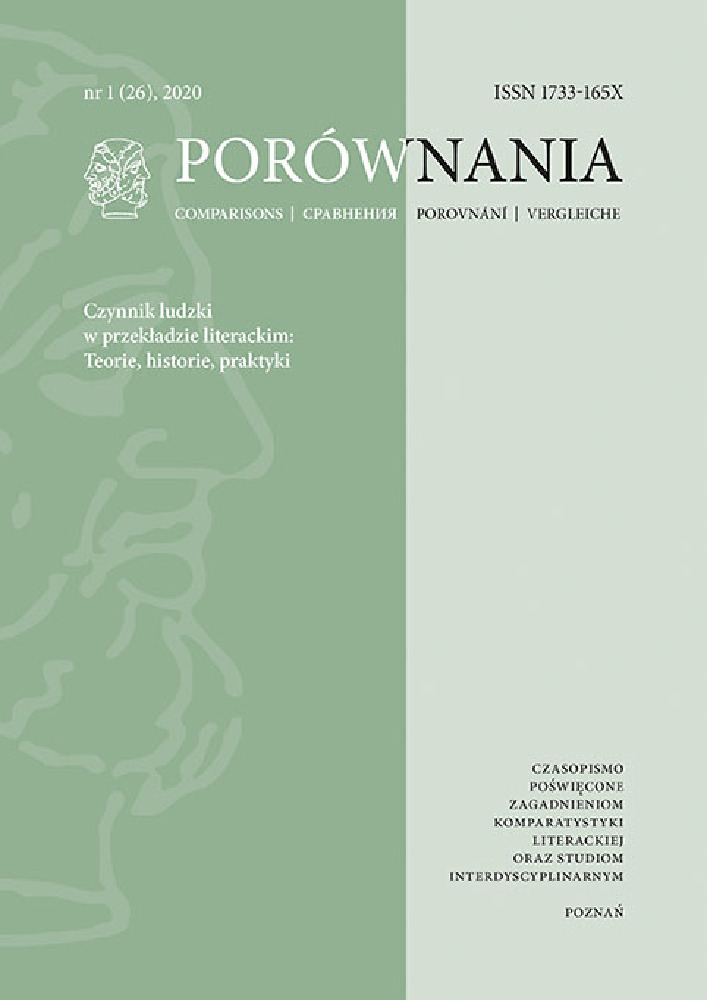Abstract
As Gaby Thomson-Wohlgemuth proves in her book Translation under State Control: Books for Young People in the German Democratic Republic, books for children and young people considered, for example, by the Israeli researcher Zohar Shavit to be a periphery of the literary polysystem (according to Itamar Even-Zohar’s theory), in a situation where the central authority tries to control and subordinate the publishing circuit begin to occupy a central place in the polysystem as the first tool for raising obedient citizens. In this case, the selection of foreign-language books to be translated and the control and censorship of existing translations also become extremely important.
In Poland after 1945, the most frequently translated Italian children’s book, apart from classics such as Carl Collodi’s Pinocchio or Edmondo de Amicis’ Heart, were books by authors connected with Marxism and with the Italian Communist Party – Gianni Rodari and Marcello Argilli. Their novels for young people
often contained anti-monarchist and anti-capitalist content. Censors, according to research conducted by Katarzyna Biernacka-Licznar, had no objections to the content of these translations. However, I would like to show, using the example of the translations of the first two novels by Gianni Rodari: Il romanzo di Cipollino (Opowieść o Cebulku) by Zofia Ernstowa from 1954 and Gelsomino nel paese dei bugiardi (Gelsomino w kraju kłamczuchów) by Hanna Ożogowska from 1962, how the translators used self-censorship procedures, such as avoiding controversial fragments of the text. The translators, aware of the existence of the censor’s institution, deliberately manipulated the text in order to facilitate the publication of these novels.
References
Biernacka-Licznar, Katarzyna. Serce Pinokia. Włoska literatura dla dzieci i młodzieży w Polsce w latach 1945-1989. Warszawa: Wydawnictwo Naukowe i Edukacyjne Stowarzyszenia Bibliotekarzy Polskich, 2018.
Cicala, Roberto. “Tutte le lingue della fantasia: Rodari e le traduzioni nelle lettere alla Einaudi”. Rodari: le storie tradotte. Red. P. Boero et al. Novara: Interlina, 2002. S. 21-27.
Rodari, Gianni. Gelsomino nel paese dei bugardi. Trieste: Einaudi Ragazzi, 2010.
Rodari, Gianni. Gelsomino w Kraju Kłamczuchów. Przeł. Hanna Ożogowska. Warszawa: Polityka, 2017.
Rodari, Gianni. Le avventure di Cipollino. Trieste: Einaudi Ragazzi, 2009.
Rodari, Gianni. Opowieść o Cebulku. Przeł. Zofia Ernstowa. Warszawa: Nasza Księgarnia, 1954.
Rossi, Luigi. “Il Rodari tradito”. Rodari: le storie tradotte. Red. P. Boero et al. Novara: Interlina, 2002. S. 117-151.
Shavit, Zohar. “Translation of Children’s Literature as a Function of Its Position in the Literary Polysystem”. Poetics Today 4 (1981). S. 171-179.
Thomson-Wohlgemuth, Gabi. Translation under State Control. Books for Young People in German Democratic Republic. New York: Routledge, 2009.
License
Utwory opublikowane w czasopiśmie „Porównania”, na platformie Pressto należącej do Uniwersytetu im. Adama Mickiewicza w Poznaniu są udostępniane na licencji Creative Commons Uznanie autorstwa - Bez utworów zależnych 4.0 Międzynarodowe (CC BY-ND 4.0)
Tym samym wszyscy zainteresowani są uprawnieni do korzystania z utworów opublikowanych pod następującymi warunkami:
-
uznania autorstwa — czyli obowiązek podania wraz z rozpowszechnianym utworem informacji o autorstwie, tytule, źródle (odnośniki do oryginalnego utworu, doi) oraz samej licencji
-
bez utworów zależnych — remiksując, przetwarzając lub tworząc na podstawie utworu, nie wolno rozpowszechniać zmodyfikowanych treści.
-
brak dodatkowych ograniczeń — nie można korzystać ze środków prawnych lub technologicznych, które ograniczają innych w korzystaniu z utworu na warunkach określonych w licencji.
Uniwersytet im. Adama Mickiewicza w Poznaniu zachowuje prawo do czasopisma jako całości (układ, forma graficzna, tytuł, projekt okładki, logo itp.).
Autor zachowuje prawa majątkowe, ale udziela zgody Uniwersytetowi im. Adama Mickiewicza w Poznaniu na wykorzystanie dzieła. Autorzy tekstów zakwalifikowanych do publikacji proszeni są o wypełnienie podpisanie i przesłanie umowa (PL) agreement (EN)
Agreement for granting a royalty-free license to works with a commitment to grant a CC sub-license




